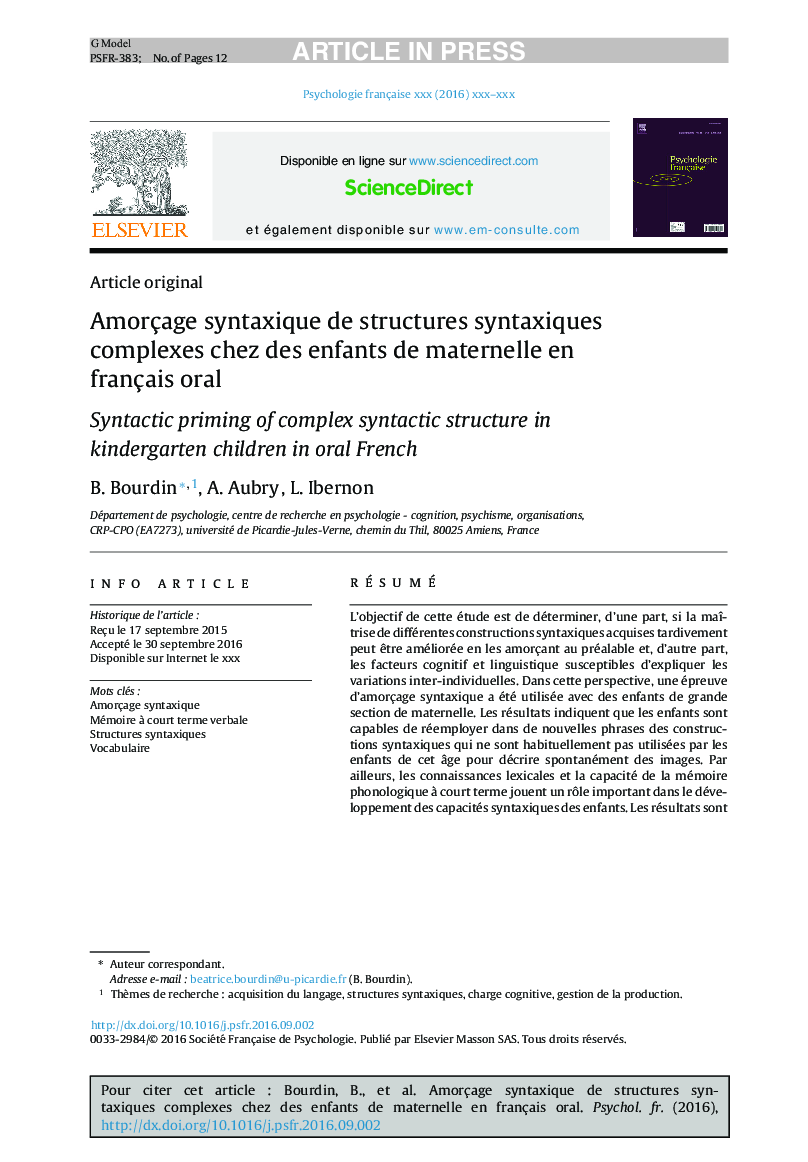| Article ID | Journal | Published Year | Pages | File Type |
|---|---|---|---|---|
| 6817367 | Psychologie Franaise | 2018 | 12 Pages |
Abstract
Several studies have revealed syntactic priming effects in 3- and 4-year-old children. However, the eventual role of syntactic priming in the learning of complex syntactic structures has rarely been investigated. The current paper investigated in young children the effect of being exposed to complex syntaxic structures employed by adults. In this perspective, we used a syntactic priming paradigm with kindergarten children. It aimed at studying whether children would in turn spontaneously produce more complex syntactic structures, compared to another condition with no prior exposure to such complex sentences. We determined the cognitive and linguistic factors susceptible to explain inter-individual differences in syntactic priming. The finding suggests that syntactic priming procedure can to be used to train young children to produce complex syntactic structures. Lexical knowledge and short-term phonological memory could explain inter-individual differences in the use of these complex syntactic structures. These results are discussed at the theoretical level, but also in terms of possible educational implications.
Keywords
Related Topics
Social Sciences and Humanities
Psychology
Psychology (General)
Authors
B. Bourdin, A. Aubry, L. Ibernon,
